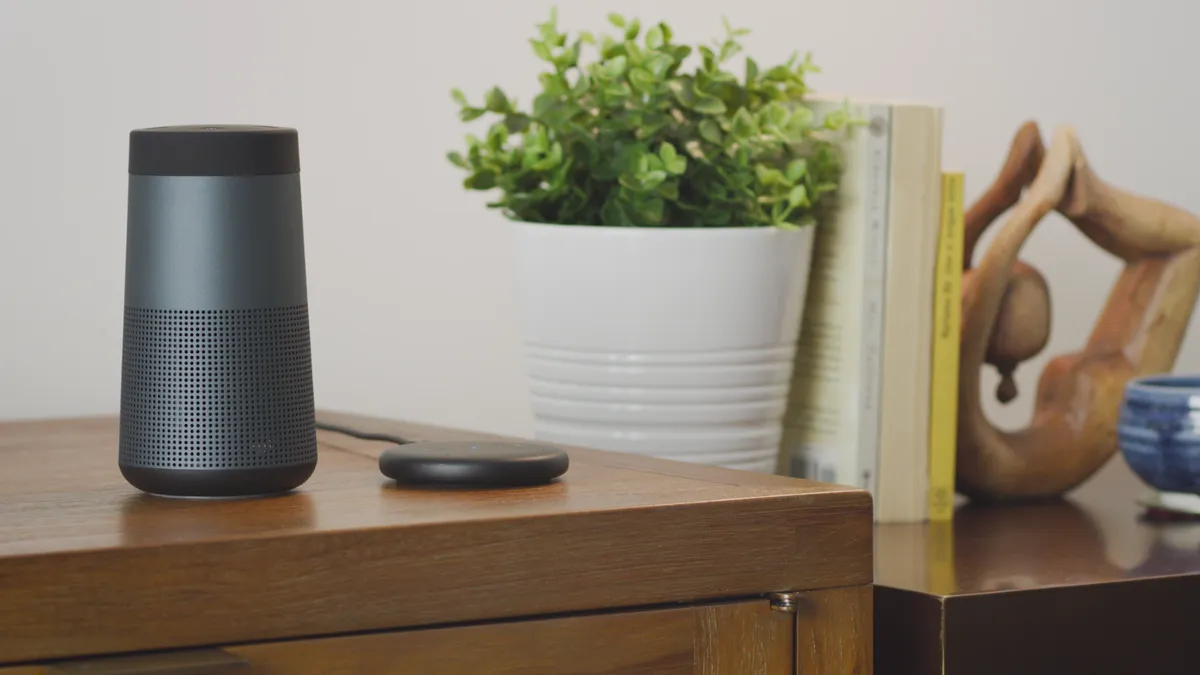Brief:
- Amazon now lets Alexa users delete the recordings that the virtual assistant captures when people speak to Echo smart speakers or the Alexa mobile app. The e-commerce giant announced the privacy feature alongside the rollout of the Echo Show 5, an Alexa-powered smart display priced $89.99.
- By saying, "Alexa, delete everything I said today," consumers can delete all recordings for a given period. Amazon will soon update the feature to let Alexa users delete their last verbal request by saying, "Alexa, delete what I just said."
- Amazon also highlighted its new Alexa Privacy Hub to provide consumers with more information about how the company collects recordings through Alexa-powered devices. The company emphasized that the virtual assistant only starts recording and sending a request to its secure cloud servers after hearing the "Alexa" wake word. While the Echo Show 5 lets users disable the microphone and camera, Amazon for the first time added a physical shutter to cover the device's camera.
Insight:
Amazon's updated privacy features are a response to criticism that its Echo devices eavesdrop on consumers, exposing their personal activities to public scrutiny. That criticism intensified after Bloomberg News reported last month that Amazon employs thousands of people who listen to people’s recordings. Those workers are part of a team that helps to improve Alexa’s natural-language processing (NLP) capabilities and better understand human speech. Amazon said its employees don’t see personally identifiable information attached those recordings, but Bloomberg later reported that workers could access location information for Alexa users, including home addresses.
The ability for Alexa users to delete their data could help Amazon differentiate its Echo products from those of its competitors. The global market for smart speakers will grow 82% to 207.9 million units by the end of this year, according to a Canalys report. Amazon is expected to continue dominating the market, despite small gains by Google, Apple, Facebook and others.
However, growth in the space could be tempered by privacy concerns. Worries about smart-speaker surveillance compelled the California State Assembly this week to pass Assembly Bill 1395, also known as The Anti-Eavesdropping Act. If signed into law, the bill will allow Amazon, Google, Apple and other makers of smart speakers to store recordings only when consumers give their permission in writing, the Mercury News reported. TechNet, the California Chamber of Commerce, Internet Association and CompTIA oppose the bill, saying a previous law already requires makers of internet of things (IoT) devices to have "reasonable" security features.
Meanwhile, consumer and privacy advocates this month filed a complaint with the Federal Trade Commission that accused Amazon of illegally collecting voice recording transcripts and personal information from its Echo Dot Kids Edition smart speaker. The complaint said 85% of the more than 2,000 games, quizzes and other Alexa "skills" aimed at kids didn't post privacy policies, per CBS News. Amazon said the speaker is compliant with the Children's Online Privacy Protection Act, known as COPPA, per Vox.














